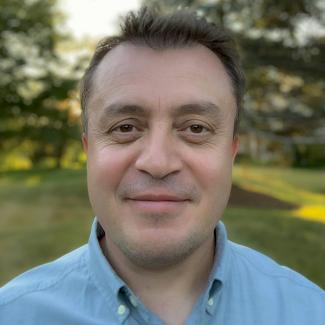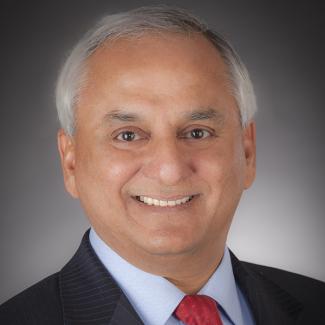
Program Description
The Department of Electrical and Computer Engineering of the FAMU-FSU College of Engineering offers through the Panama City Campus a thesis program and a non-thesis program for the Master of Science (M.S.) degree in Electrical Engineering (E.E.). The program includes common core courses, major depth concentration, and breadth in electrical engineering. A minimum of thirty (30) credit hours of course work and thesis are required for the thesis program, and thirty-three (33) credit hours of course work and master’s comprehensive exam are required for the non-thesis option degree program.
Admissions
To be considered for admission, candidates must have earned a bachelor of science degree (or equivalent) in electrical engineering, or a closely related discipline, from an Accreditation Board of Engineering and Technology (ABET) - approved program, a grade point average (GPA) of at least 3.0 on a 4.0 scale for all work attempted beyond sixty (60) semester hours of undergraduate study.
FSU PC does not require nationally standardized graduate admissions tests, such as GRE, for Master’s programs.
International candidates must have earned a bachelor of science degree (or equivalent) in electrical engineering from a recognized non-U.S. academic institution, a grade point average (GPA) of at least 3.0 on a 4.0 scale for all work beyond the equivalent of sixty (60) semester hours of undergraduate study (as evaluated by the admissions office) and a combined score of at least 1000 on the verbal and quantitative portions of the GRE, and a minimum score of 550 on the Test of English as a Foreign Language (TOEFL) if English is not their native language. Students with a bachelor’s degree in a field other than electrical engineering may be required to complete a department-designated sequence of undergraduate courses with grades of “B” or better prior to attempting graduate electrical engineering work.
Thesis and Course Work Requirement—Thesis Program
All master of science thesis program students must complete a written thesis. Upon completion of the thesis, an oral defense is required, which consists of a public presentation of the student’s work to the department and the student’s supervisory committee. Students must register for EEL 8976, Master’s Thesis Defense, before the defense presentation.
Thesis
- All master of science thesis program students must complete a minimum of thirty (30) credit hours of course work to satisfy the master of science (M.S.) degree in electrical engineering requirements. Twelve (12) hours are required from the student’s depth area, twelve (12) semester hours in supplemental electives and a minimum of six (6) credit hours are required for the thesis (EEL 6971r). A minimum of three (3) credit hours of supplemental electives should be a course in advanced mathematics, typically a 5000 level course, or a departmental approved substitute. Up to six (6) credit hours of 4000 level courses can be completed on S/U basis. The master’s degree candidate may also be permitted to take up to six (6) credit hours of 4000 level courses for letter grade credits beyond those required for a baccalaureate degree with the approval of the ECE graduate coordinator.
- Students must identify their major professors by the end of the first semester of course work and are required to submit a plan of study by the time they have completed twelve (12) credit hours of graduate studies. The plan of study must be approved by the departmental graduate coordinator and the student’s major professor. The student’s major professor also will assist the student in forming the student’s supervisory committee.
- All master of science (M.S.) thesis program students are required to register for EEL 8976, Master Thesis Defense, and at least one (1) semester hour of EEL 6971r, Thesis, in the semester they plan to graduate.
Supervisory Committee
The Supervisory Committee for a master’s degree thesis program student consists of a minimum of three (3) members of graduate faculty who hold master’s directive status. At least half of the committee members must be faculty members form the ECE Department.
Master’s Thesis Defense Announcement
It is the student’s responsibility to post the thesis defense announcement within the department and the College of Engineering at least one week prior to the defense. The announcement should include: thesis title; student’s name; student’s department; major professor and committee members; date; time and location of the defense.
Course Work and Master’s Comprehensive Exam Requirements—Non-Thesis Program
All students in the non-thesis MS degree program must submit a formal request to obtain and official approval from his/her advisor (if there is one) and the ECE graduate coordinator to be exempt from the thesis requirement. The non-thesis option degree program requires a student to complete a minimum of thirty (30) credit hours of graded coursework beyond those required for the student’s baccalaureate degree. A minimum of three (3) credit hours must be a course in advanced mathematics, typically a 5000 level course. The non-thesis option degree program student must register for and successfully pass the required Master’s Comprehensive Exam, EEL 8966. Student may attempt to take one Master’s Comprehensive Exam in each calendar year. A maximum of three (3) attempts will be permitted.
Transfer Credits
A maximum of six (6) credit hours of letter-grade graduate coursework may be transferred from another academic institution(s) to the student’s current master’s degree program, thesis or non-thesis, with the approval the ECE Departmental Graduate Committee. A grade of “B” or better is required on all transfer credits.
Graduate Seminar Requirement
All full-time master of science (M.S.) degree candidates are required to enroll in the graduate seminar, EEL 6932r, for each semester that they are enrolled in the graduate program. See your advisor for details.
Graduate Course Curriculum
EEL 5173 (3) Signal and System Analysis
- Prerequisite: EEL 3135 or EEL 4652
- Course Description:Continuous and discrete dynamic models, with an emphasis on state variable models; Laplace transform, z-transform, and the time domain solutions. Includes real-time digital simulation and sampling theory.
EEL 5247 (3) Power Conversion and Control
- Prerequisite: N/A
- Course Description: DC and AC circuits, transient and frequency response, and electronic circuits. This course introduces solid-state power conversion and control circuits, e.g. analysis and design of nonlinear multiple-phase circuits with sinusoidal and non-sinusoidal variables; constant-frequency and variable-frequency input converters, variable-frequency inverters; sensing and processing circuits supporting control systems, embedded microprocessor control systems.
EEL 5250 (3) Power System Analysis
- Prerequisite: N/A
- Course Description: Study of power system planning and operational problems. Subjects covered are load flow, economic dispatch, fault studies, transient stability, and control of problems. System modeling and computer solutions are emphasized through class projects.
EEL 5270 (3) Power Systems Transients
- Prerequisite: EEL 4213 (Power Systems I)
- Course Description: Electrical transients in power systems; study of time domain, frequency domain and traveling wave techniques for transient analysis; study of switching transients associated with loads, capacitors, faults, line reclosing and single-pole switching; study of interaction between lighting and power systems; introduction to insulation coordination.
EEL 5315 (3) Digital Integrated Circuit Design
- Prerequisite: EEL 4301
- Course Description: Design of digital integrated circuits, applications, solid state device switching characteristics, memory, computer aided design and layout.
EEL 5317 (3) Power Electronics
- Prerequisite: EEL 3135, EEL 3300
- Course Description: This course is designed to develop a basic understanding of using switched electronic circuits for the conversion and regulation of electrical power. The course will focus on the basic converters and their steady state analysis. Dynamic modeling analysis and converter controller design are also covered. Introduction of power semiconductor devices and converter simulation are integrated.
EEL 5333 (3) Solid State Sensors
- Prerequisite: EEL 3300
- Course Description: Topics in this course include fabrication, characterization, operational principles, and applications of solid state sensors including acoustic, mechanical, magnetic, radiation, thermal, chemical, and biologic sensors.
EEL 5378 (3) Mixed Signal ICs
- Prerequisite: EEL 5315
- Course Description: Introduction to mixed signal processing using analog and digital integrated circuits. Topics include fundamentals of sampled data systems, nonlinear and dynamic analog circuits, Nyquisit-rate data converters, over-sampling data converters, and digital filters. Includes use of computer-aided-design programs.
EEL 5416 (3) Sonar
- Prerequisite: EEL 3473, EEL 3512
- Course Description: Basic concepts of sonar systems including: acoustic propagation, transducers and projectors, target strength, reverberation, beam steering, beam forming, beam patterns, synthetic aperture sonar.
EEL 5443 (3) Electromagnetics and Optics
- Prerequisite: EEL 3473
- Course Description: Electromagnetic wave theory-Maxwell's equations, planes waves, energy and power flow. Geometrical optics; applications to optical systems, optical fibers, and resonators. Wave propagation in layered media; applications to lasers and integrated optics. Quantum theory of light; black body radiation; introductory quantum electronics; selected research topics.
EEL 5454 (3) Optical Sensors
- Prerequisite: EEL 3512, EEL 3473 or equivalent
- Course Description: Basic concepts of optical sensors and essential optics. Intensity, phase, and frequency modulated optical fiber sensors and their applications. Distributive sensing systems. Optical fiber in signal processing.
EEL 5465 (3) Antenna Theory
- Prerequisite: EEL 3473 or EEL 4461
- Course Description: Electromagnetic fields, radiation from simple sources and apertures; receiving antennas; arrays-uniformly spaced, non-uniform, pattern synthesis; cylindrical antennas and arrays; radiation from conical and spheroidal structures; slot antennas; open waveguides and small horns.
EEL 5486 (3) Advanced Electromagnetic Theory
- Prerequisite: EEL 3473
- Course Description: Advanced concepts and theorems in electromagnetic fields; plane, cylindrical, and spherical wave functions; perturbation and variational techniques; microwave networks.
EEL 5500 (3) Digital Communication Theory
- Prerequisite: EEL 4514
- Course Description: Principles of modern digital communication systems, including pulse-code modulation, error-control coding, optimal signal protection, and the information theory.
EEL 5542 (3) Random Processes
- Prerequisite: EEL 4021, EEL 3135
- Course Description: Random processes, analysis and processing of random signals; modeling of engineering systems by random processes; selected applications in detection; filtering; reliability analysis; and system performance modeling.
EEL 5547 (3) Radar
- Prerequisite: N/A
- Course Description: Basic concepts of radar systems including: radar range equation, radar cross section calculations, random processes and noise, array antennas, beam steering, Doppler and range processing, FM and CW systems, pulse compression, synthetic aperture radar, clutter.
EEL 5563 (3) Optical Fiber Communications
- Prerequisite: N/A
- Course Description: Review of the characteristics of basic optical components for optical communications systems, e.g., optical fibers, light sources, optical detector and fiber connectors; signal degradation in optical fibers; optical analog and digital communication systems; coherent optical fiber communications.
EEL 5590 (3) Advanced Topics in Communications
- Prerequisite: Fourier transform analysis of signals; amplitude modulation; fundamentals of phase and frequency modulation; a probability theory course.
- Course Description: This course is designed to provide an in-depth knowledge of some of the advanced topics in communications. Topics covered are: ideal communication systems, signal to noise ratio (S/N) for amplitude and angle modulation, design of systems to improve S/N ratio, satellite communication, mobile communication.
EEL 5591 (3) Wireless Communications
- Prerequisite: EEL 3135, EEL 3021, EEL 4514, "C" Programming or equivalent
- Course Description: This course covers the fundamentals of wireless communications and systems. The core topics include radio-wave propagation characteristics of wireless channels; modulation and demodulation techniques for mobile radio; reception techniques for wireless systems; fundamentals of cellular communications; multiple access techniques; wireless networking; and hybrid networking of a wireless system and the Internet.
EEL 5617 (3) Multivariable Control
- Prerequisite: EEL 4652
- Course Description: Course covers H2 and H? control design for linear systems with multiple inputs and multiple outputs. Globally optical techniques, fixed-structure (e.g., reduced-order) techniques. Includes introductory concepts in robust control.
EEL 5630 (3) Digital Control Systems
- Prerequisite: EEL 4652
- Course Description: Discrete system modeling, frequency-domain and z-plane root-locus design techniques, system compensation, with an emphasis on utilizing computer applications packages.
EEL 5667 (3) Robot Kinematics and Dynamics
- Prerequisite: EEL 4652
- Course Description: Introduction to robot kinematics and dynamics, including forward kinematics, inverse kinematics, and differential kinematics. Also covers rigid motion and homogenous transformations, velocity and force/torque relations and resolved motion rate control; serial, parallel and kinematically redundant manipulators.
EEL 5707 (3) ASIC Systems Design I
- Prerequisite: EEL 3705
- Course Description: Introduction to Application Specific Integrated Circuit (ASIC) families. Overview of programmable ASICs. Introductions to the VHDL design entry and simulation language. Programmable ASIC design methodology will be introduced.
EEL 5764 (3) Computer System Architecture
- Prerequisite: EEL 3705, EEL 4746
- Course Description: Comprehensive study of computer organization, Von Neumann computer architecture, and the application of the advanced techniques for computer system design.
EEL 5784 (3) Computer Network Design and Analysis
- Prerequisite: Graduate standing or consent of instructors
- Course Description: This is a first course in the fundamentals of computer network design and analysis. The course will present network architecture using a layered approach. Analysis and examples of network protocols and standards will be presented. Techniques for evaluating network performance and selecting appropriate network protocols will be covered.
EEL 5812 (3) Advanced Neural Networks
- Prerequisite: EEL 4810
- Course Description: This course is designed to provide students with an in-depth knowledge if advanced topics in Neural Networks such as: universal approximation networks, transformation-based neural networks, information theoretic models, foundations of neurodynamics.
EEL 5905r (1 - 3) Directed Individual Study
- Prerequisite: Graduate standing
- Course Description: May be repeated to a maximum of six (6) semester hours.
EEL 5910r (1 – 5) / (S/U grade only) Supervised Research
- Prerequisite: Graduate standing and departmental approval
- Course Description: Cannot be used as credit toward degree. May be repeated to a maximum three (3) semester hours for candidates in master's degree, and five (5) semester hours for candidates in doctoral degree.
EEL 5930r (3) Special Topics in Electrical Engineering
- Prerequisite: Graduate standing and departmental approval
- Course Description: Special topics in electrical engineering at the graduate level with emphasis on recent research and developments. content, credit and prerequisites vary-consult instructor. May be repeated to a maximum of twelve (12) semester hours.
EEL 5940r (1 – 5) / (S/U grade only) Supervised Teaching
- Prerequisite: Graduate standing and departmental approval
- Course Description: Cannot be used as credit toward degree. May be repeated to a maximum of three (3) semester hours for candidates in master's degree, and five (5) semester hours for candidates in doctoral degree.
EEL 6266 (3) Power Systems Operation and Control
- Prerequisite: 6266
- Course Description: A course dealing with modern power operational and control problems and solution techniques, including state estimation, contingency analysis, load-frequency control, and automatic generation control. Additional subject covered are load-flow analysis, unit commitment, and external equivalents for steady-state operations.
EEL 6353 (3) Semiconductor Device Theory
- Prerequisite: EEL 3300 or equivalent
- Course Description: Elementary quantum physics, energy band theory, carrier properties, theory of p-n junctions, optoelectronics diodes, bipolar junction transistors, and filed effect transistors.
EEL 6457r (3) Advanced Topics in Optoelectronic Systems
- Prerequisite: N/A
- Course Description: Typical offerings include: waves and fields in electro-optics; modern optics and coherence; optical data processing; nonlinear optics; laser technology; electro-optical circuits and systems for signal processing; electro-optical devices. May be repeated to a maximum of twelve (12) semester hours.
EEL 6502 (3) Digital Signal Processing I
- Prerequisite: EEL 5173
- Course Description: Fundamentals of digital signal processing and design of a variety of digital processors and filters. Introductions to DFT-FFT, and spectral estimation theory and practice.
EEL 6558r (3) Advanced Topics in Digital Signal Processing
- Prerequisite: N/A
- Course Description: Typical offerings include: advanced digital signal processing; fast DSP algorithms; image processing; data compression; computer vision; pattern recognition; VLSI based DSP design; advanced signal and systems theory. May be repeated to a maximum of twelve (12) semester hours.
EEL 6619 (3) Robust Control
- Prerequisite: EEL 5617
- Course Description: Course covers control design for systems with uncertain dynamics; robust H? design; structured singular value synthesis; LMI and Riccati equation solution techniques.
EEL 6708 (3) ASIC Systems Design II
- Prerequisite: EEL 5707
- Course Description: Course covers MOS transistor theory, CMOS Logic gate design, ASIC standard cell library design, ASIC partitioning, floor planning and placement. Introduction to routing algorithms and test methods.
EEL 6799r (3) Advanced Topics in Computer Engineering
- Prerequisite: N/A
- Course Description: Typical offerings include: digital systems design; advanced computer architecture; local area networks; telecommunication networks; data and computer communications; queuing systems; artificial intelligence; expert systems; distributed computer systems; artificial neural networks; automata theory. May be repeated to a maximum of twelve (12) semester hours.
EEL 6905r (1 - 3) Directed Individual Study
- Prerequisite: Graduate standing
- Course Description: May be repeated to a maximum of six (6) semester hours.
EEL 6930r (3) Special Graduate Topics in Electrical Engineering
- Prerequisite: N/A
- Course Description: Special topics in electrical engineering at the graduate level with emphasis on recent research and developments. Content, credit, and prerequisites vary-consult the instructor. May be repeated to a maximum of twelve (12) semester hours.
EEL 6932 (0) / (S/U grade only) Electrical and Computer Engineering Seminar
- Prerequisite: N/A
- Course Description: The graduate students are expected to enroll in the course every semester they are enrolled at FAMU or FSU. The students should attend at least 80% of the seminar each semester to obtain a satisfactory grade.
EEL 6971r (1-6) / (S/U grade only) Master's Thesis
- Prerequisite: Graduate standing and instructor's permission
- Course Description: A minimum of six (6) semester hours of credit is required. Department approval required.
EEL 8966r (0) / (S/U grade only) Master's Comprehensive Examination
- Prerequisite:
- May be repeated twice.
EEL 8976 (0) / (S/U grade only) Master's Thesis Defense
- Prerequisite:
- May be repeated once.



